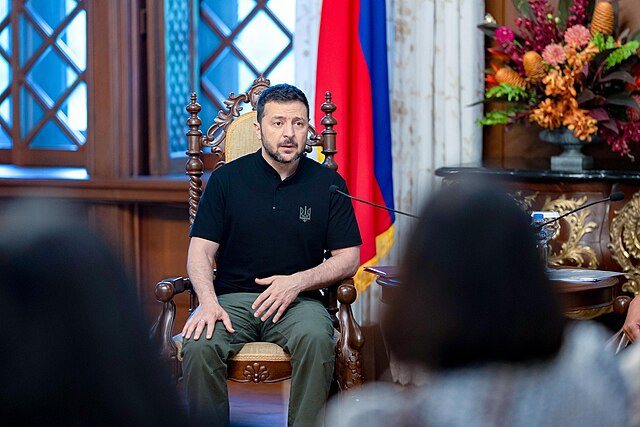Ukrainian President Volodymyr Zelenskyy departed the Group of Seven summit in Kananaskis, Canada on Tuesday without securing a long-sought meeting with U.S. President Donald Trump or a joint G7 statement backing Ukraine. The summit exposed deepening divides among the Western powers over how to address Russia's war, as Trump departed early to manage the escalating conflict between Israel and Iran.
Canada pledged 2 billion Canadian dollars ($1.47 billion) in new military aid for Ukraine, but the absence of unified messaging from the G7 marked a shift from previous summits. Speaking after meeting the remaining G7 leaders, Zelenskyy said in a Telegram post: "Diplomacy is now in a state of crisis." He urged leaders to "continue calling on Trump to use his real influence" to help end the war.
A Canadian official initially told reporters that plans for a joint statement on Ukraine were scrapped due to U.S. resistance. That claim was later retracted by Emily Williams, a spokesperson for Canadian Prime Minister Mark Carney, who stated that "no proposed statement regarding Ukraine was distributed to other leaders."
President Trump did endorse a separate group statement on the Israel-Iran conflict before departing the summit, which described Iran as a key source of instability and affirmed Israel's right to defend itself.
At a closing press conference, Carney said, "We had a declaration given the exceptional, fast-moving situation in Iran." G7 leaders did agree to six other statements on topics ranging from artificial intelligence to transnational repression, but Ukraine was noticeably absent from the communiqués.
The Kremlin quickly seized on the G7's disunity. A Russian official said Tuesday the group "looked rather useless," and praised Trump for saying the expulsion of Russia from what was formerly the G8 in 2014 was a mistake.
German Chancellor Friedrich Merz said he was "returning to Germany with cautious optimism that decisions will also be made in America in the coming days to impose further sanctions against Russia."
Trump's early exit left U.S. Treasury Secretary Scott Bessent and Commerce Secretary Howard Lutnick to continue discussions with G7 counterparts. A White House official said the president returned to Washington to lead high-level National Security Council meetings in person due to the deteriorating Middle East situation.
While Ukraine secured a financial commitment from Canada, Zelenskyy's broader mission to rally unified pressure on Russia was undercut by the absence of new arms pledges from the U.S., Ukraine's most significant defense partner. Several European diplomats indicated Trump expressed openness to further actions, including potential U.S. Senate legislation drafted by Senator Lindsey Graham, but no firm commitments were made.
Zelenskyy told reporters Ukraine remains ready for peace, saying, "We are ready for the peace negotiations, unconditional ceasefire. But for this, we need pressure."






